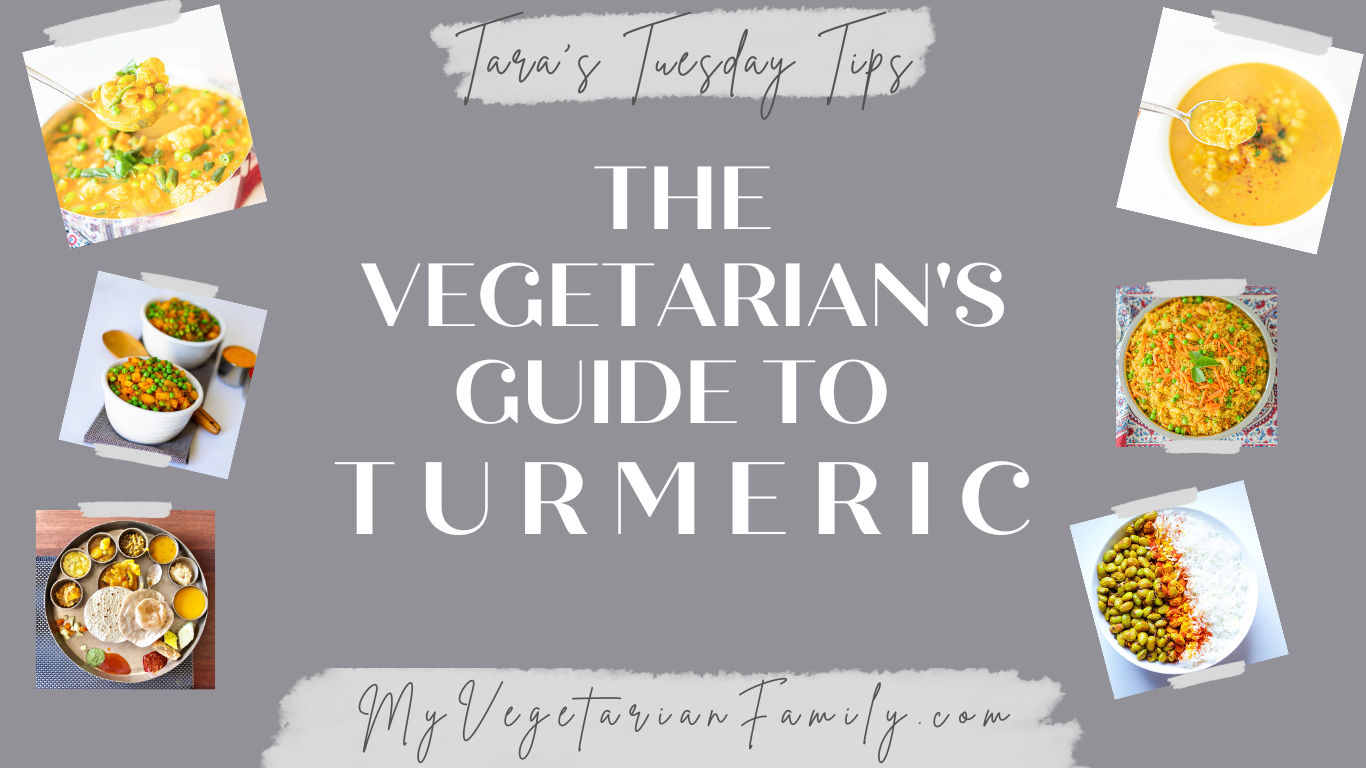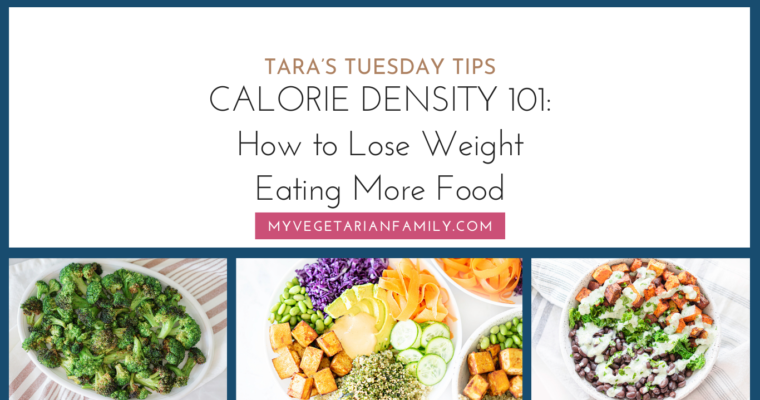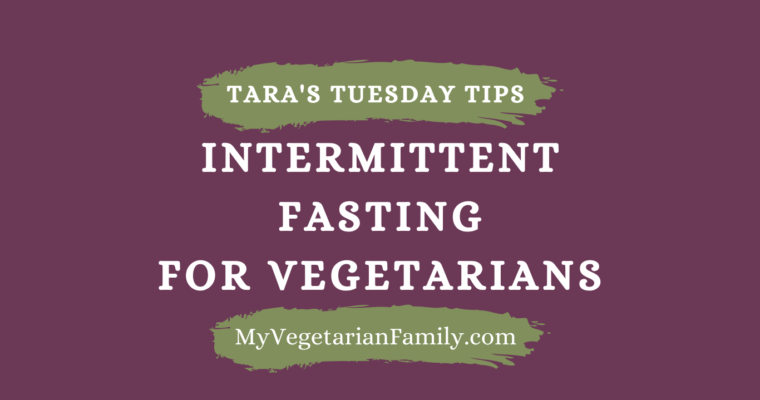Have you noticed more and more foods having a gorgeous yellow glow popping up in your favorite places to eat? Lattes, teas, smoothies, soups, ice cream + more. The not-so-secret ingredient? You guessed it, turmeric! As the fastest growing supplement in America, turmeric is making its way into may spice bottles, recipes, and daily health regimens. This is not a new spice in an Indian kitchen + has been used in Ayurvedic practices for thousands of years. I cook with turmeric on a daily basis, and if you haven’t jumped on the turmeric train, The Vegetarian’s Guide to Turmeric will certainly make you want to give it a try.
Tara’s Tuesday Tips:
The Vegetarian’s Guide to Turmeric
Everything you ever wanted to know about turmeric in one place! So many great properties for your health and for your everyday cooking. Hope this helps you love turmeric as much as we do in the MVF kitchen!
What is Turmeric?
A spice that comes from the root of the curcuma longa plant. In the same family as ginger, turmeric is native to Southeast Asia.
The Magic is in the Curcumin
Curcumin gives turmeric its vibrant yellow color + is also the powerful phytochemical giving turmeric its anti-inflammatory + antioxidant properties.
A Good Mood Food
Thanks to the power of curcumin, turmeric has been shown in studies to put you in a good mood. A 2014 study published in The Journal of Affective Disorders (PMID 25046624) helps us understand the effects of curcumin on depression. That particular study shows us how similar cur cumin effects can be to Prozac in people with depression, mood swings, anxiety, and stress. Therefore, this makes turmeric a powerful alternative or compliment to medications. Curious about other good mood foods? Read this: The Vegetarian’s Guide To Mood Boosting Foods.
Pain + Inflammation
Studies are still underway with this, but, there are already quite a few impressive ones already. If you suffer with acute or chronic inflammation, you might want to give turmeric a try. Some of the preliminary research in this area has shown that turmeric supplements can be as effective as ibuprofen in treating pain, arthritis, and inflammation.
Improves Memory
A 2018 study published in the American Journal of Geriatric Psychiatry (PMID 29246725) gave a group of people turmeric twice a day and compared them to a group who got placebo. At the end of the study period, the group taking turmeric had an improvement in their memory while those who took the placebo had no memory improvements. More research is still needed in this area, but, if this is a concern for you, prevention of Alzheimer’s and a slow in cognitive decline might be one of turmeric’s greatest properties.
A Healthy Heart
Turmeric contains high levels of Vitamin B6. Vitamin B6 can protect the heart from damage. The curcumin in turmeric helps the body get rid of LDL (the bad cholesterol) from the arteries therefore could be one of the tools in your toolbox to prevent atherosclerosis. A few more healthy heart articles I have written, well worth the read: Five Minute Tips For A Healthy Heart, How To Eat For Heart Health, How to Lower Your Cholesterol.
Supercharge Your Gut
Turmeric has been known to be used in alternative medicine practices to treat constipation, Irritable Bowel Syndrome, intestinal cramping, Crohn’s disease, and Inflammatory Bowel Disease. Many intestinal problems can be caused by inflammation. Therefore, the antioxidant properties of curcumin can be helpful if you are suffering from gut issues.
The Skinny on Turmeric
Some research is telling us that turmeric increases metabolism allowing you to burn more calories and therefore you lose weight. In addition, anything that is an anti-inflammatory is helpful in your weight loss efforts because while your body isn’t busy fighting inflammation, it can easily focus on your metabolism + digestion.
Proceed With Caution
There are very few human studies on the potential dangers of using turmeric and curcumin as a supplement or for medicinal purposes. As with any supplement, the interaction with traditional medications and pre-existing health conditions are not studied enough for us to know all the risks involved. In high doses, turmeric and curcumin are not regulated. Therefore, for now, integrating a little turmeric into your regular routine is a great idea especially if you suffer with pain or inflammation. However, I strongly advise against going to get an intravenous infusion of it.
The Vegetarian’s Guide to Incorporating Turmeric into Your Daily Routine
- Sprinkle it into your eggs or tofu scramble or frittata
- Toss it into your spice mix for roasted vegetables
- A pinch of ground turmeric or a sliver of the root blended into your smoothie
- Simmer it with your tea
- Add a little pepper into anything you put turmeric into to boost the effects and increase absorption
- Use it to boost the golden yellow color of your soups, stews, pastas, or curries
- Turmeric golden milk or lattes
- Shaken onto a bowl of fresh popped popcorn with salt + pepper
- Cook with it! See lots of recipes at the bottom of this post for ideas
A Note About Turmeric Supplements
Firstly, I feel very strongly about only using vitamins + supplements that are absolutely necessary for your overall health based on your lab values or deficiencies. Secondly, before beginning to take any supplement, please go over all your medications, over the counter medications, and supplements with your health care provider. Third, if you are pregnant, breastfeeding, suffer with gallbladder disease, kidney stones, clotting disorders, iron deficiency, or diabetes, a turmeric supplement is absolutely contraindicated. Next, the current literature agrees that a range between 500mg and 2000mg per day are the effective ranges depending on what you are using it for. Above all, if you do decide to go with a supplement, consider combining it with black pepper to increase absorption and as always, be sure to purchase supplements from a reputable source. Curious about supplements? Start here: Should You Be Taking Supplements as a Vegetarian?
Food For Thought
There is a very good reason … wait … there are many good reasons … that …. in every Indian kitchen you will find lots and lots of turmeric. We use it to flavor our foods, give things beautiful color, and more. For thousands of years, Ayurvedic practitioners have been treating a whole range of illnesses with turmeric. Now, our ancient spice is having its moment in the wellness world.
In typical Tara style, I am not going to let you jump on the supplement train on this one without proper knowledge, and I certainly don’t want you signing up for daily turmeric via intravenous. However, cook with it, drink it, eat it! If you suffer with pain or inflammation or rely on anti-inflammatory medications, consider asking your healthcare provider if a supplement is right for you. If you don’t know how or are scared to try cooking with it, reach out to me, I have lots of tips + tricks for you: tara@myvegetarianfamily.com!
My Favorite Recipes Using Turmeric
I make sure I use turmeric every single day here in the MVF kitchen. Some days I simply sprinkle it on my popcorn or in my smoothie. Other days, I cook dishes with turmeric as one of the flavorful spices. I aim for at least ½ teaspoon per day for each one of us. Try one of my favorites!
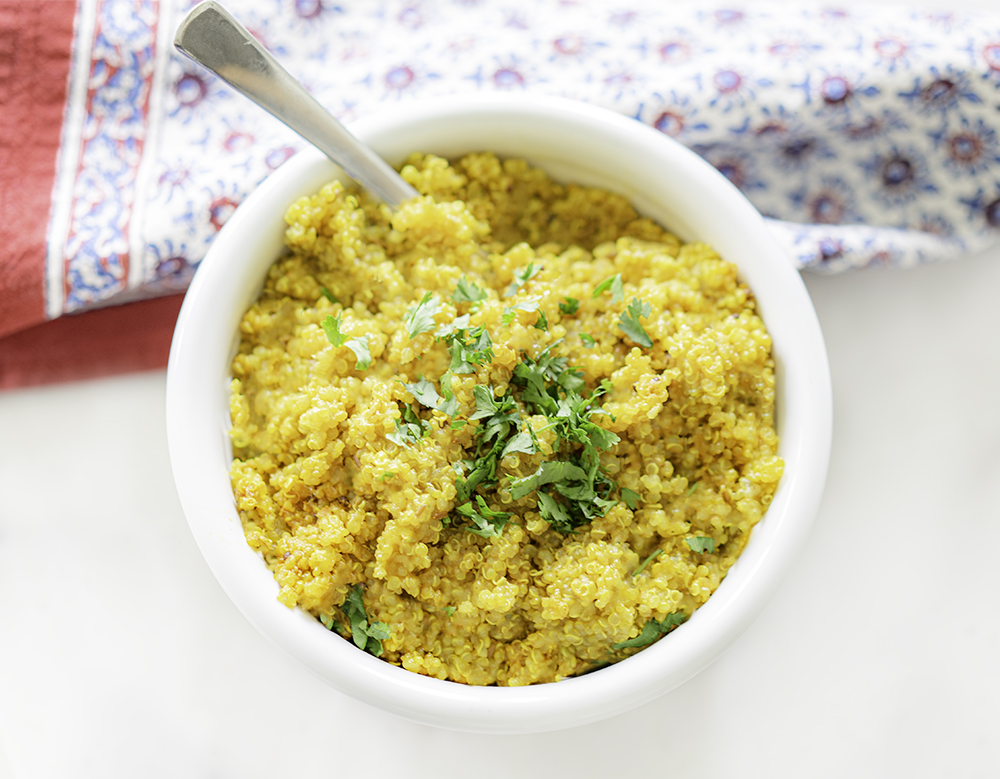
Instant Pot Indian Turmeric Quinoa
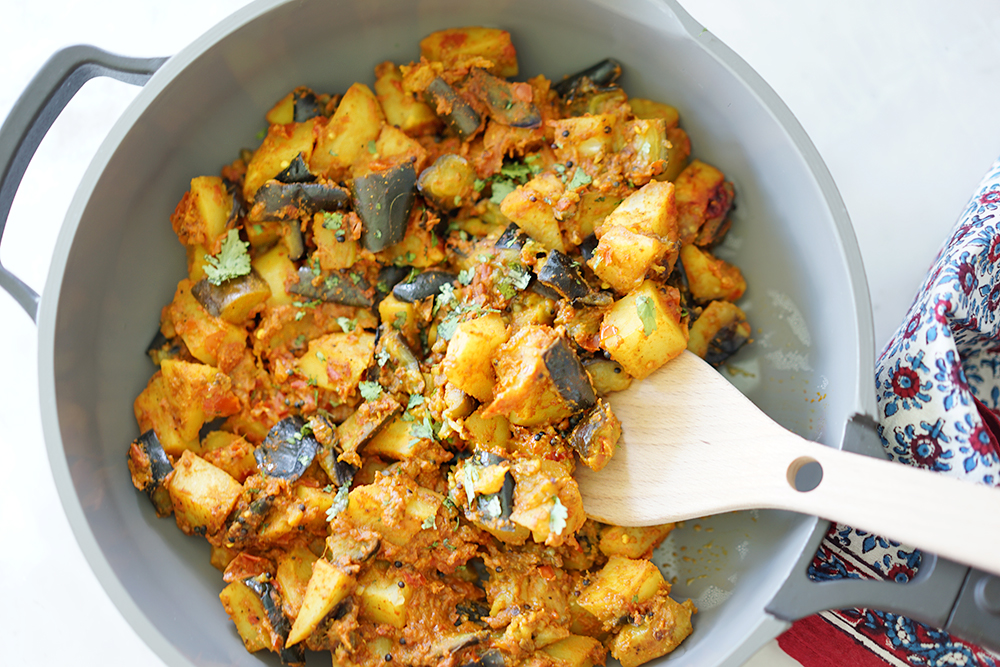
Indian Potatoes with Eggplant (Aloo Baingan)
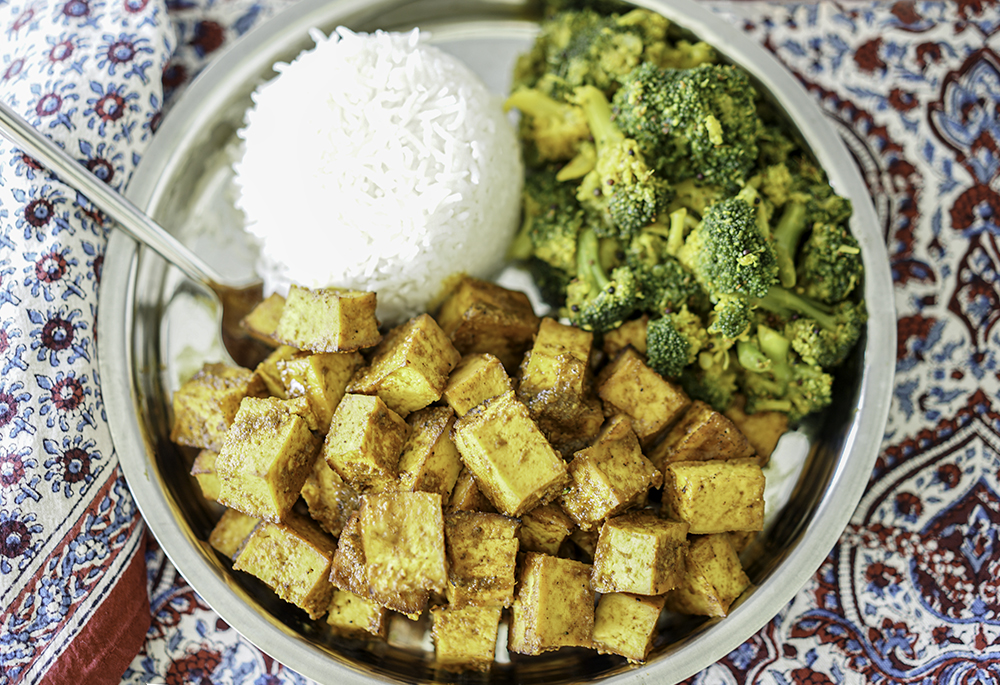
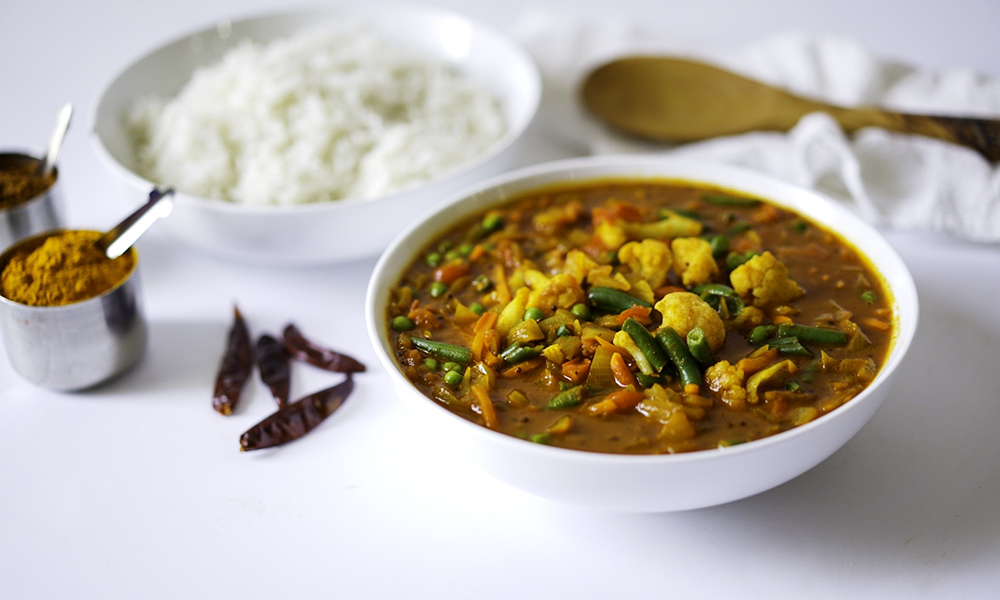
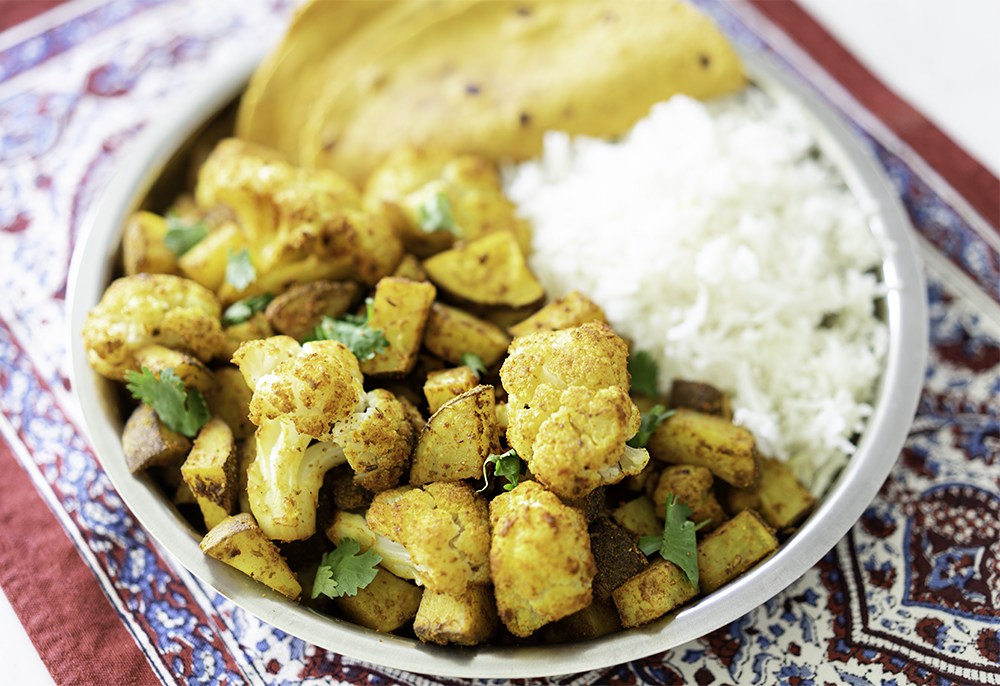
Baked Indian Potatoes with Cauliflower
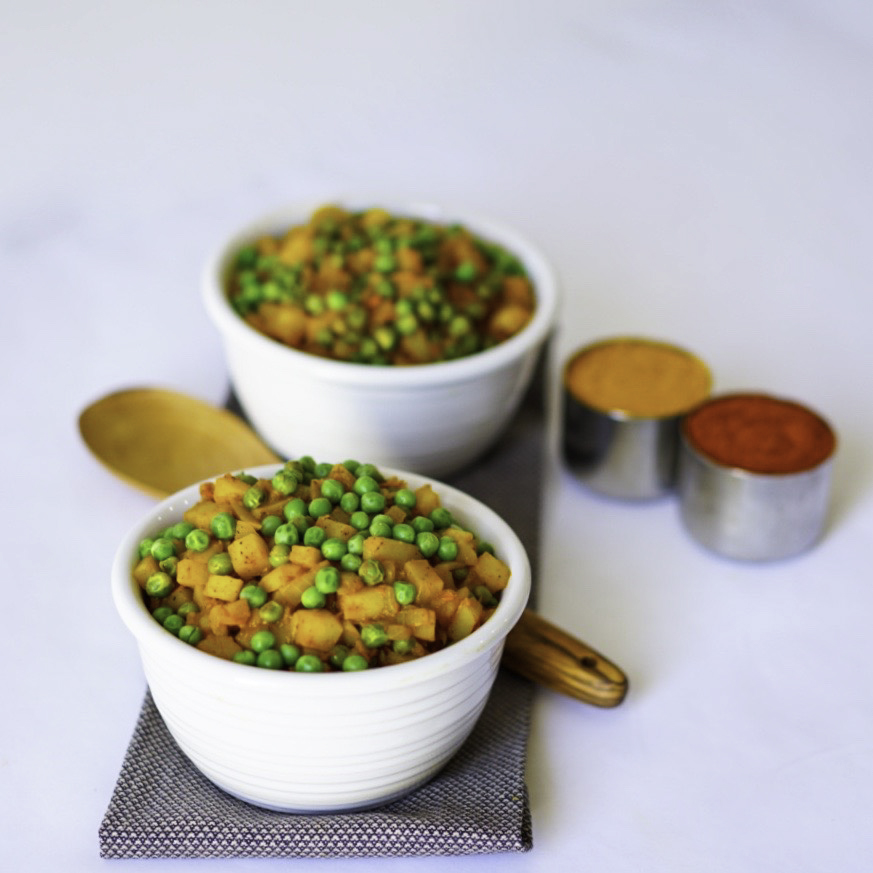
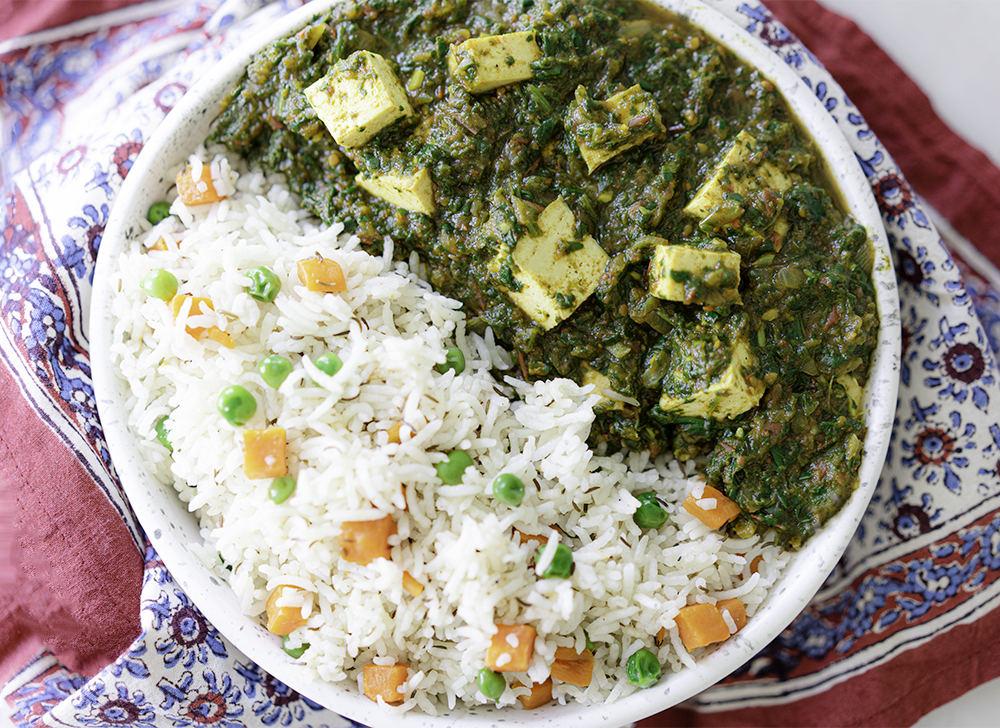
Vegan Tofu Palak Paneer Recipe
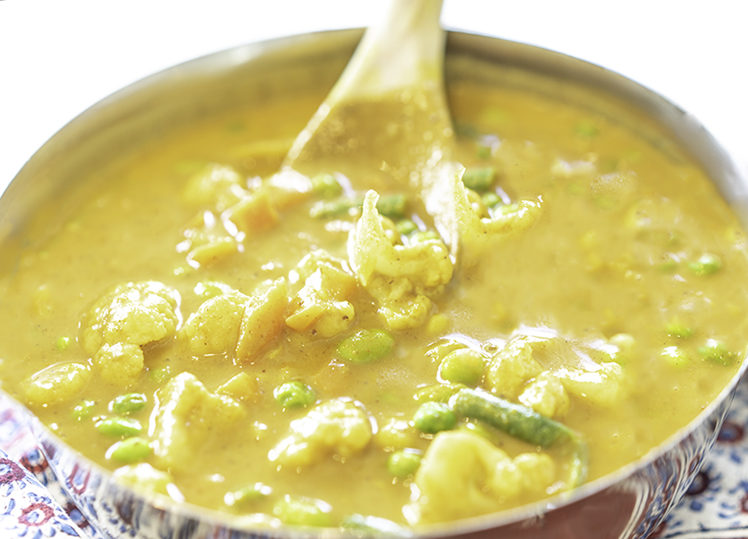
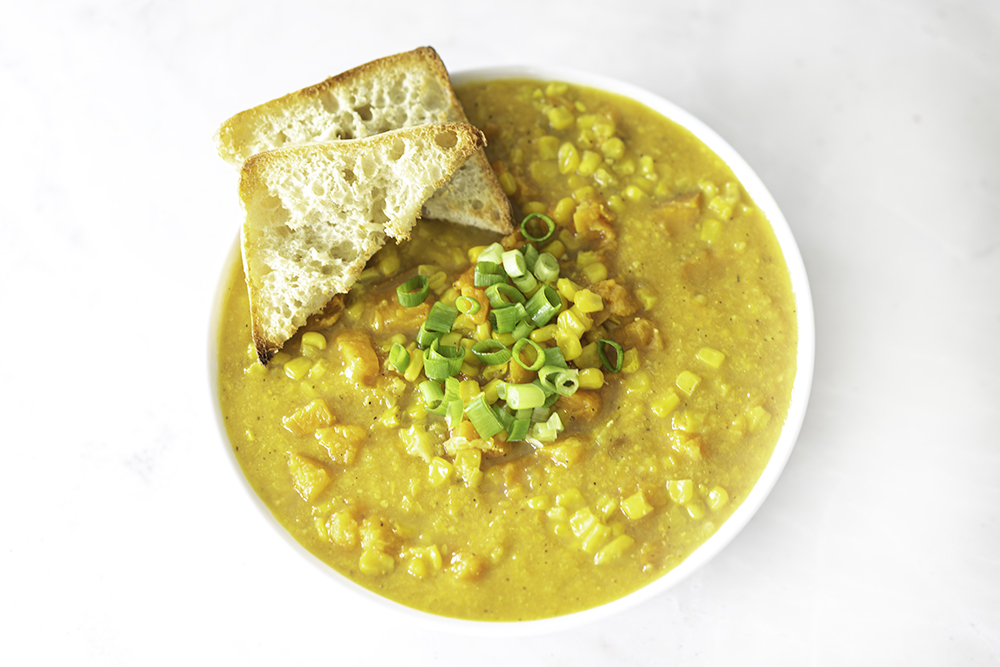
Instant Pot Sweet Potato Corn Chowder (Vegan!)
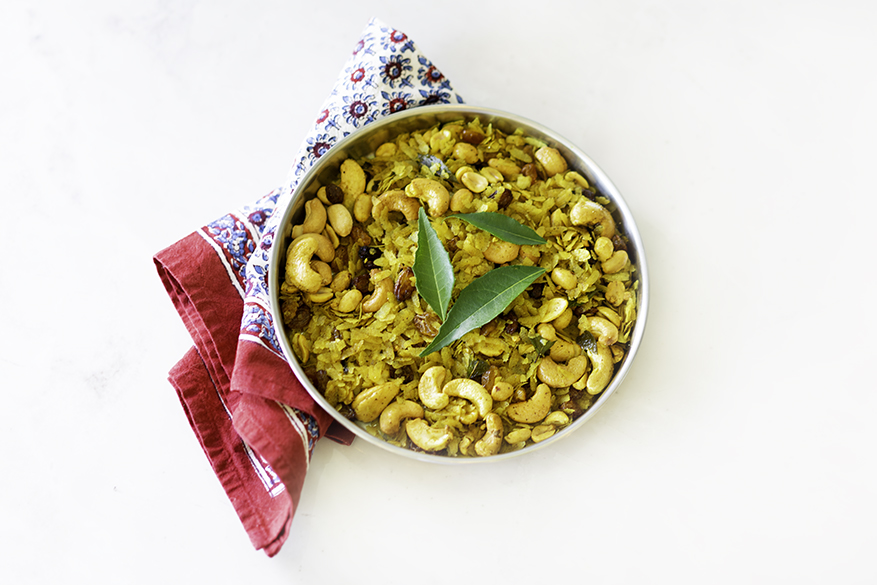
Easy Poha Chivda (Baked not Fried!)
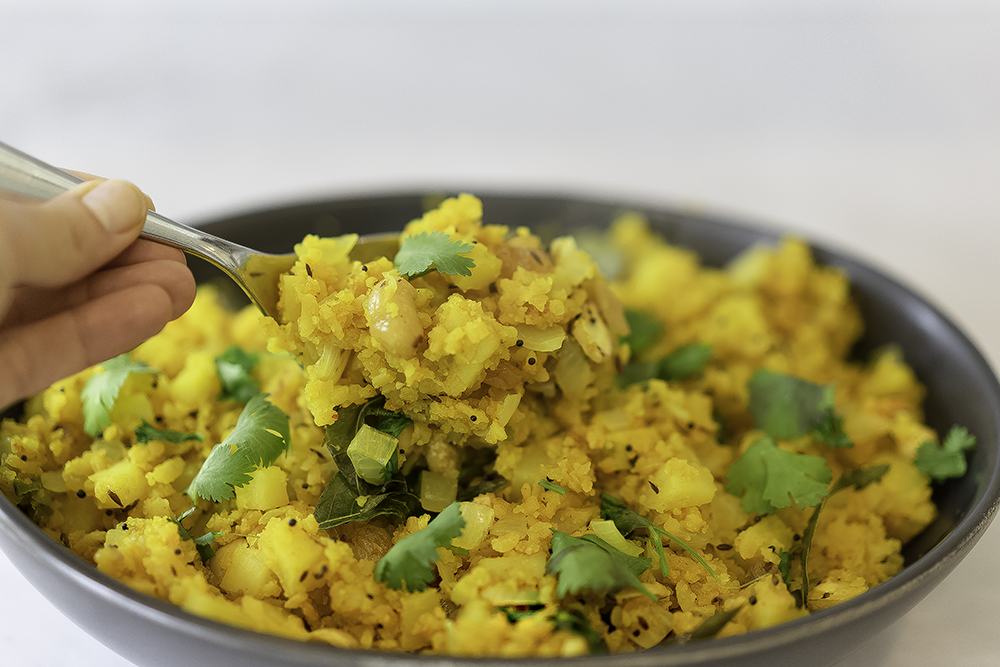
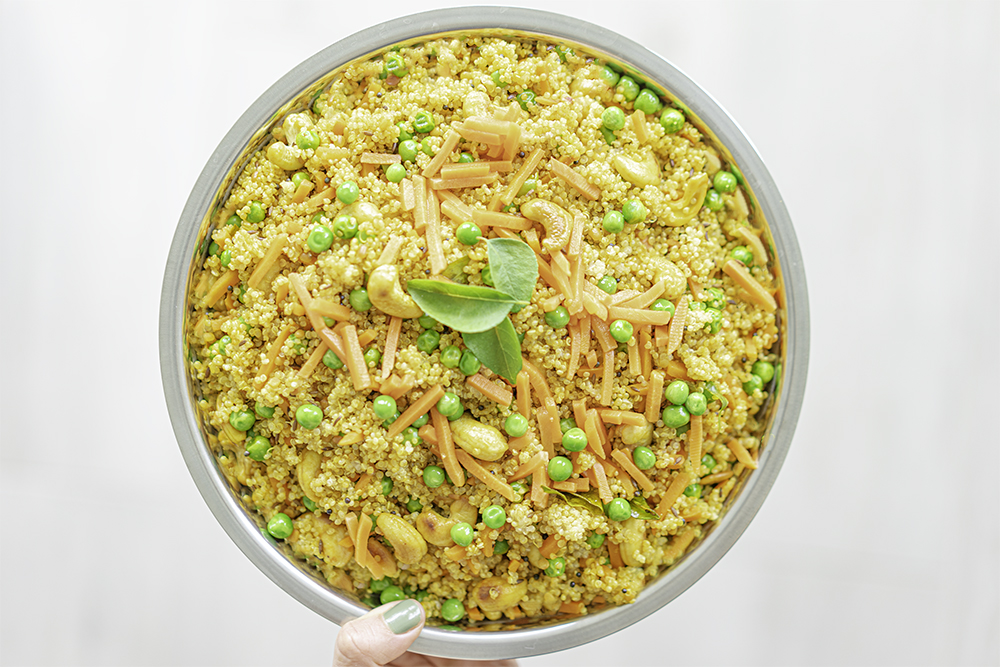
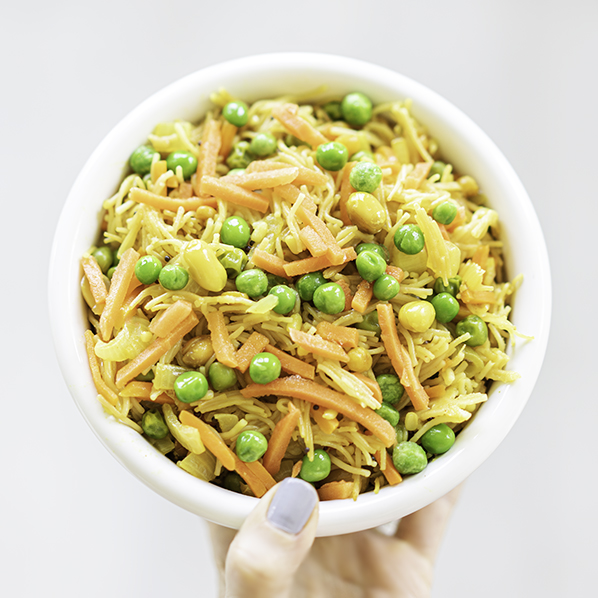
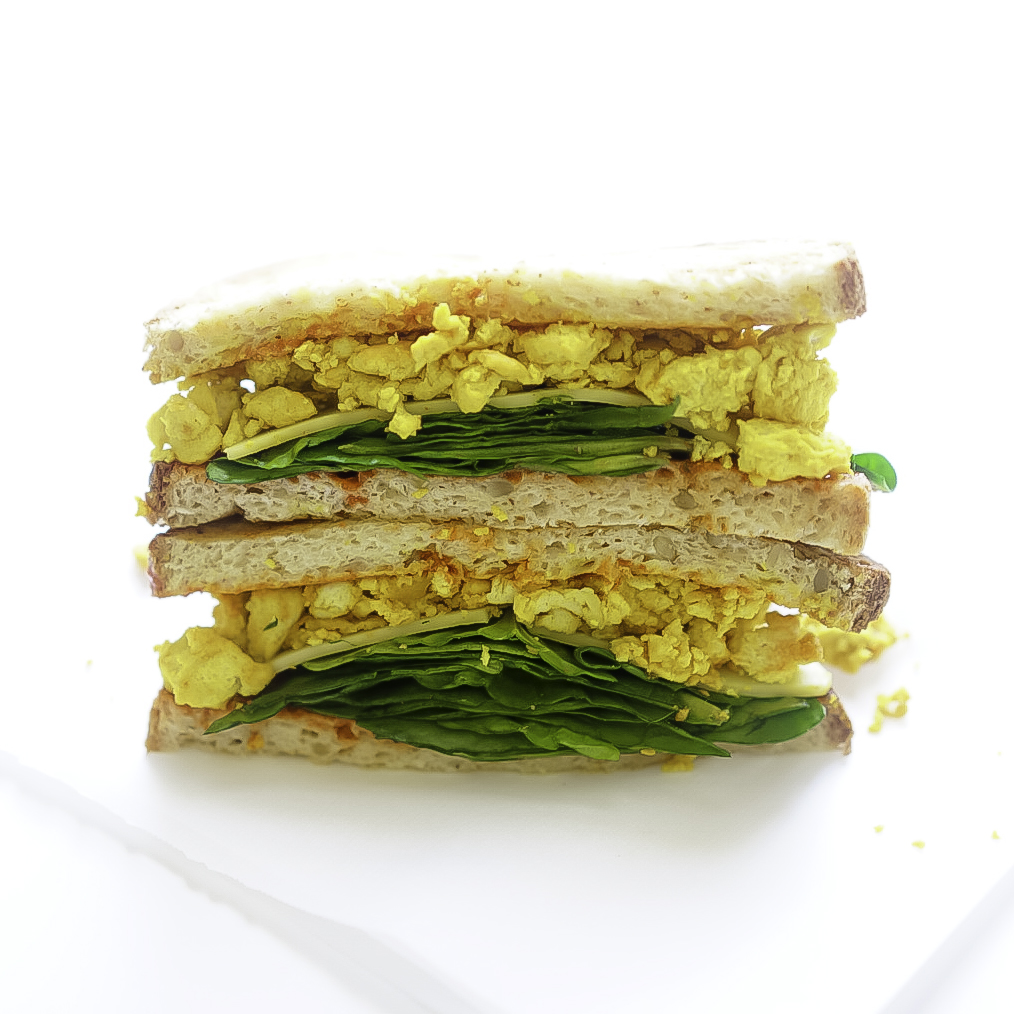
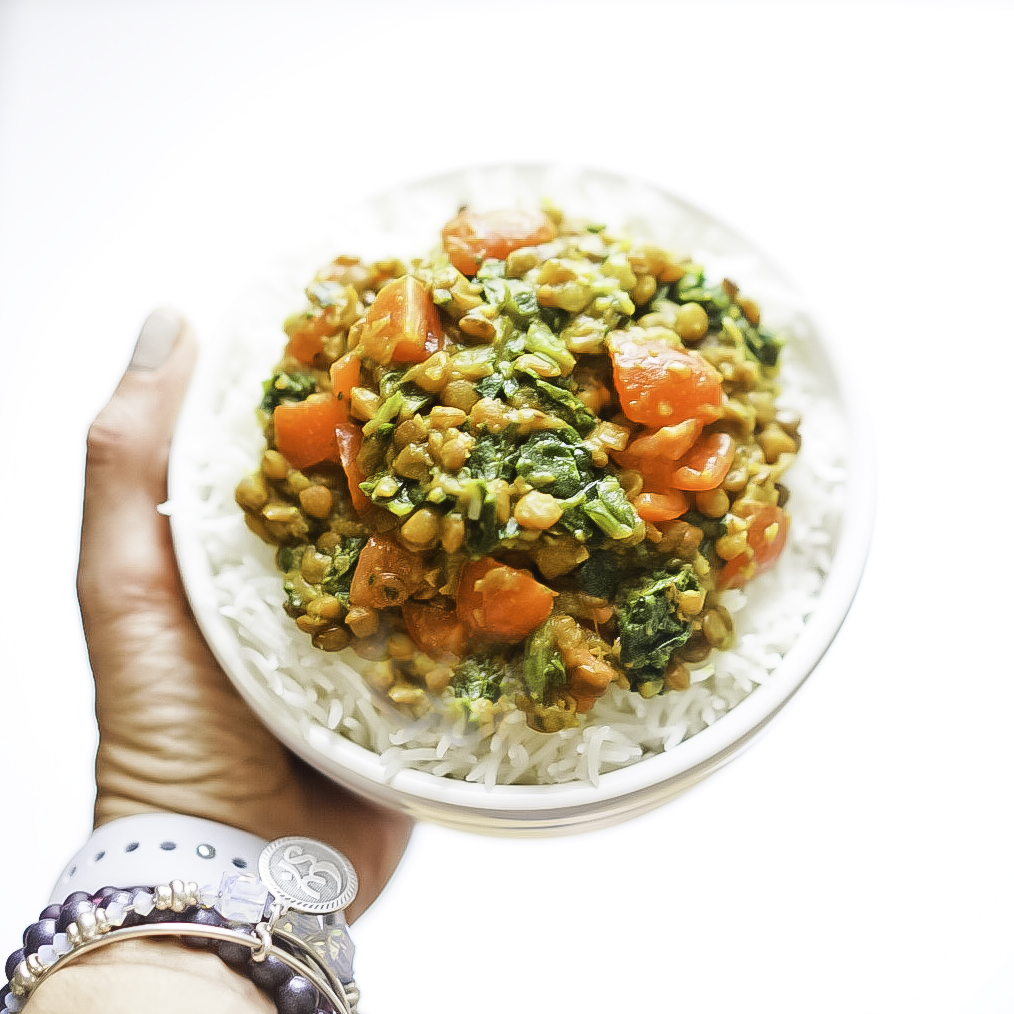
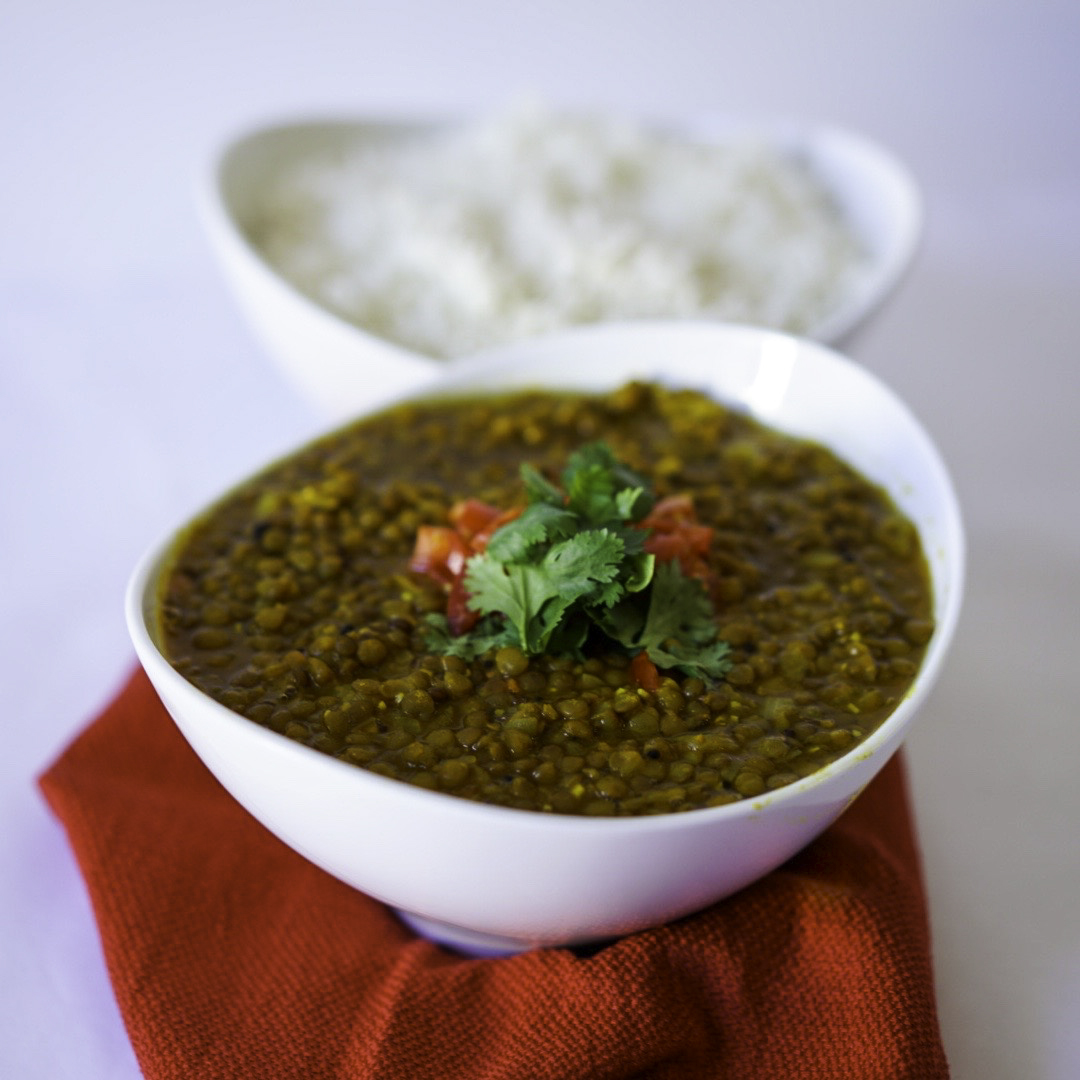
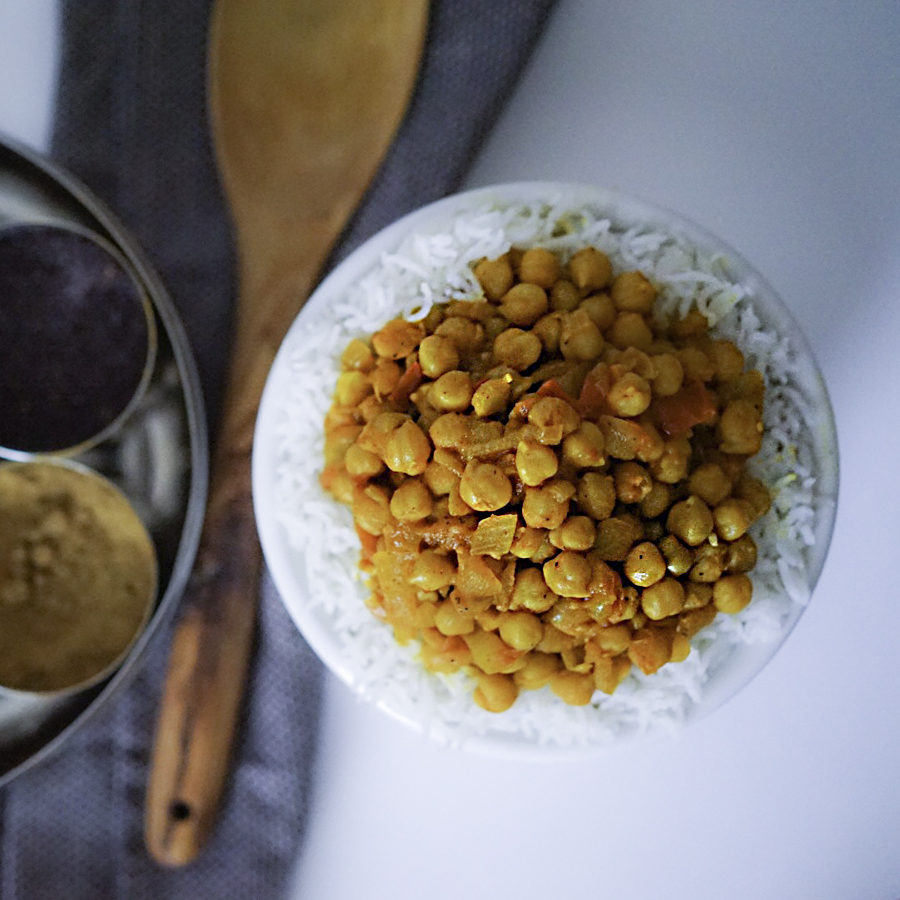
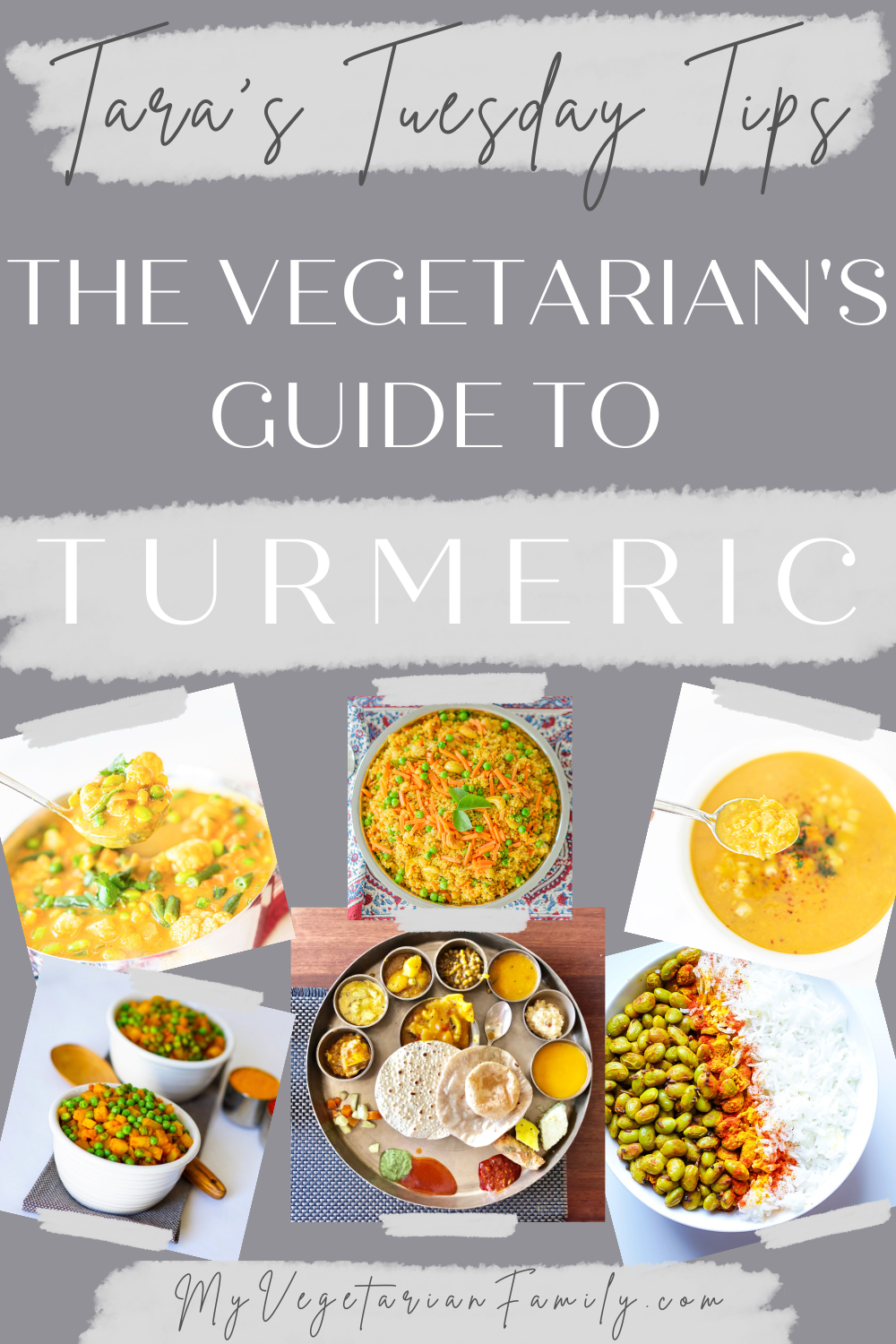
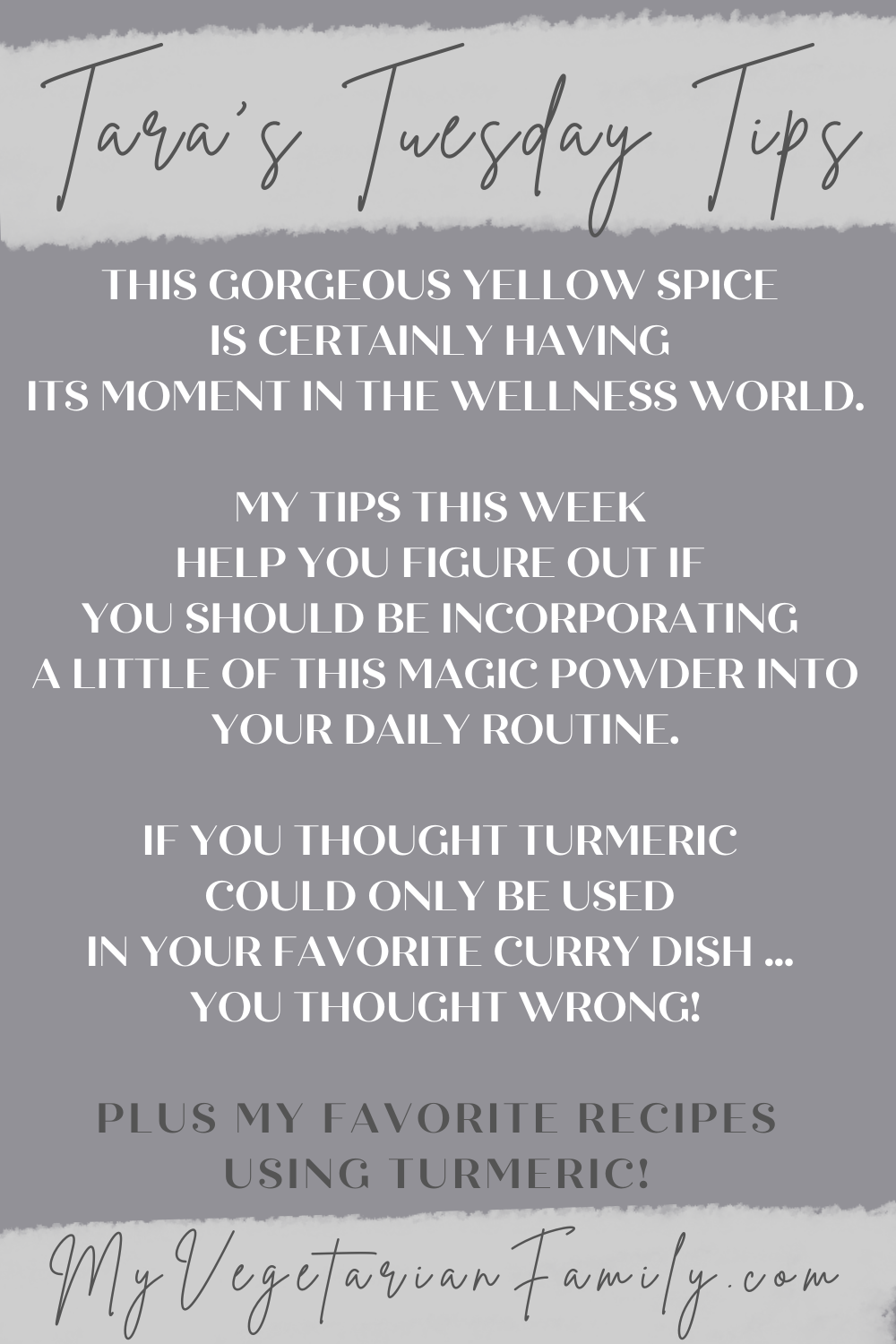
⭐Did you learn all about turmeric in The Vegetarian’s Guide to Turmeric? Leave a comment below!
📸I love to see your creations! So, go follow me on Instagram @myvegetarianfamily and hashtag it #myvegetarianfamily
📩Be sure to subscribe here to my weekly emails for tips + recipes so that you never miss a veggie thing!
